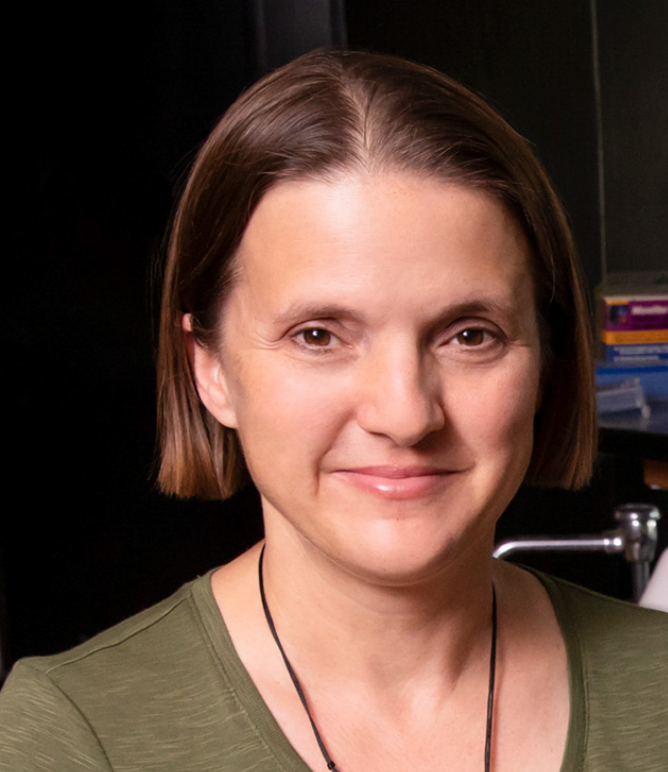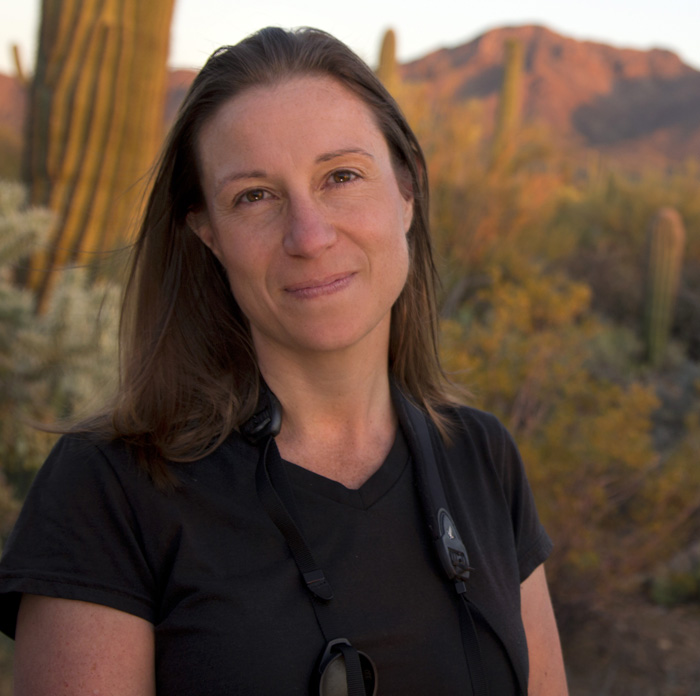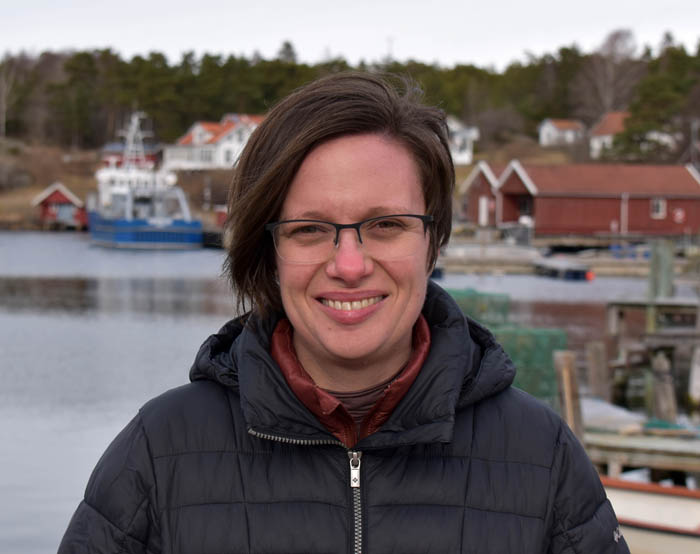The ASN has chosen three new officers, who will be joining the Executive Committee in the New Year. We congratulate the winners, whose election statements are presented below, as well as the distinguished runners-up, Mark Urban, Erol Akçay, and Matthew Schrader.
Results of the 2024 Election
Posted on
Rebecca (Becky) Fuller, President 2026 (serving 2025–2027)

Photo © Board of Trustees of the University of Illinois
Election Statement:
I am an evolutionary biologist who studies fishes with an emphasis on non-model systems. Much of my work has focused on the evolution of color patterns and color vision across diverse aquatic lighting environments from a sensory drive framework. My lab also studies speciation and seeks to determine the roles of adaption versus genomic rearrangements on reproductive isolation, as well as the cascading effects of reinforcement between species in behavioral isolation among populations within species.
I obtained a BS at the University of Nebraska, an MS from Michigan State University, where I studied at Kellogg Biological Station, and a PhD at Florida State University. I joined the faculty at the University of Illinois in 2005 in the Department of Evolution, Ecology, and Behavior, where I am now a Professor and Department Head. I have received various awards from the University of Illinois for Teaching, Mentorship, and Leadership During the COVID-19 crisis, as well as awards for Scholarship and Research. I am a fellow of AAAS, and many years ago, I was an ASN Young Investigator (now called the ‘ASN Early Career Investigator Award’) and a Fulbright Fellow.
Beyond my involvement with ASN, I have served on the council for the Society for the Study of Evolution (2016–1018), the SSE Rosemary Grant Award Committee (2016, 2018), the SSE Hamilton Award Committee (2012–2015), and the SSE Education Committee (2017–2020). I have served as an associate editor at Evolution (2011–2014, 2019–2022) and Current Zoology (2015–22). I have also led multiple teacher workshops to promote the teaching of evolution, developed K-12 curricula in relation to evolution and phenotypic plasticity, and created online resources and hands-on displays regarding the underappreciated fish diversity in central Illinois.
I have been actively involved with ASN in various capacities. My roles have included serving as an Associate Editor at The American Naturalist (2014–present), participating as a member of the Student Research Awards Committee (2012–2014, chair 2014), contributing to the Asilomar Stand Alone Meeting Committee (2014), representing ASN on the Joint Meeting Committee for the Tri-Society Meeting (2014–2017), holding the position of ASN Treasurer (2020–2022), and currently serving as ASN Past Treasurer (2023–present). Additionally, I have organized two ASN sessions at the Tri-Society Meeting: the ASN Education Symposium: Natural History in the Classroom (Portland, 2017) and ASN Spotlight Session: 25 Years of Sensory Drive (Portland, 2017).
The primary goals of science are to create new knowledge, to communicate that knowledge to our fellow scientists and the public, and to cultivate the next generation of scientists to carry forward this mission. The American Society of Naturalists supports these endeavors through our journal, our meetings, our support of early career scientists, and our recognition of excellence at all career stages. As president, I would work to ensure that ASN maintains its identity as the home for broad, conceptually driven biology. While evolution informs much of what we do, ASN spans a wider domain, including ecology, behavior, sensory ecology, biomechanics, conservation, and an appreciation of natural history; these relationships need constant nurturing. I am also keen to increase our support of regional (and perhaps virtual) meetings, which are less expensive to attend, have a smaller carbon footprint, and can provide good opportunities for early career scientists to network. I am committed to fostering inclusivity, ensuring equitable access for individuals from all backgrounds, particularly those historically marginalized, and amplifying the visibility of diverse voices within our scientific community. Central to this vision is the cultivation of a vibrant, diverse community where there is free discussion of issues involving science and life in general. Finally, I am committed to maintaining the good governance of the ASN and to maximizing the benefits derived from our resources.
Renée Duckworth, Vice President 2026 (serving 2025–2027)

Election Statement:
I am truly honored to be nominated for the office of Vice President of the ASN. As an integrative evolutionary biologist, this society has always occupied a special place for me with its emphasis in conceptual unification of the biological sciences, particularly evolution, ecology and behavior. My research integrates all three by using ecological and evolutionary concepts to understand the historical origin and current maintenance of adaptation, focusing on complex behaviors. Central to my approach is the view that organisms and environments are complex systems in which feedbacks, nonlinear dynamics, and networks of interactions across scales drive ecological and evolutionary change. To investigate these dynamics, I use field experiments, empirical measures of lifetime fitness, laboratory studies of neuroendocrine response to stressors, molecular multi-generational pedigree reconstruction, and, most recently, genomic approaches. Much of my work has focused on the dynamics of trait evolution in the context of successional cycles and species coexistence in passerine birds.
After receiving my Ph.D. in the Biology Department at Duke University in 2006, I went on to complete two back-to-back postdocs, first at Edinburgh University’s Institute of Evolutionary Biology and then at Harvard University’s Department of Organismic and Evolutionary Biology. I started a faculty position at the University of Arizona Department of Ecology and Evolutionary Biology in 2010 and have been there ever since. Just prior to starting my faculty position, I received the American Society of Naturalists’ Young Investigator Prize and the American Ornithologist Union’s Ned K. Johnson Young Investigator Award. In 2014, I received an NSF CAREER Award and I am currently a Fellow of the American Ornithological Society.
I have received many benefits from ASN over the years and I am happy to serve and give back to the society whenever possible. I have been an Associate Editor for The American Naturalist since 2018, have served on several important society committees (e.g. Young Investigator Prize committee and the Regional Society Liaison committee). I have also served in leadership roles in other societies and scientific organizations, e.g. as a past Associate Editor for both Evolutionary Ecology and Ornithological Applications, on the board of directors and council for the American Ornithological Societies (before and after a large merger), and as a co-organizer of annual society conferences. In these roles, I have championed initiatives to broaden participation, and to increase society benefits for students and early career professionals. These past editorial and organizational roles have prepared me well for the duties of the ASN Vice President’s office.
I participated in my first Vice Presidential Symposium in 2007, at the annual meeting in Christchurch, New Zealand. I was a postdoc at the time and it was a highly impactful experience. It showed me the power of bringing together a diverse group of scientists to focus on a single topic. I would use my own opportunity to organize a symposium to bring together a similarly diverse group of scientists from all career stages, including many early career researchers.
If elected for this position, I would be excited to organize a symposium on the topic of dynamic stability in evolutionary systems. The goal of this symposium will be to integrate our understanding of how ecological systems maintain stability over time and ask whether these same mechanisms might help us to understand patterns of stasis and change on evolutionary timescales. I envision a symposium that brings together scientists from diverse fields that investigate dynamics of biological systems across scales (from developmental biology and physiology to eco- and macroevolutionary change) with the ultimate goal of searching for unifying principles that regulate phenotypic change and stability.
Katie Lotterhos, ASN Secretary 2025–2027

Election Statement:
I am thrilled to be nominated as Secretary of the Executive Committee for ASN. I am an Associate Professor at Northeastern University who seeks to understand how the past has shaped current patterns of biodiversity and how a now rapidly changing climate will affect biodiversity in the future. My lab's research uses theory and experiment to inform each other and develops novel statistical methodology to integrate data across biological, spatial, and temporal scales. To address pressing issues in biological science, we use a combination of field surveys, experiments, mathematical modeling, genomics, and bioinformatics. Current study systems in the lab include oysters, eelgrass, and marine fish.
I received a BA in Physics with a Biology Minor from Binghamton University and a PhD in Biology from Florida State University, where my dissertation focused on population genetics of a long-lived marine fish. I am the Principal Investigator for the Research Coordination Network for Evolution in Changing Seas, a Fulbright Scholar, and a recipient of the CAREER Award from the National Science Foundation.
Diversity and inclusion are central in my lab’s work. We reach high schoolers from environmental justice communities via a few different outreach programs in the Boston area. For undergraduate and graduate students, I spearheaded a Virtual Lab Meeting Program that matched students from diverse backgrounds with labs in another geographic area that matched their interests. This program helped to expand the student's professional networks and open them to new opportunities. Elsewhere, I have organized and taught in several workshops that covered topics in statistical genomics, coding, and building apps for data collection. As PI of a Research Coordination Network, I have experience coordinating many teams of people that will serve me well in the position of Secretary.
I am a lifetime member of ASN. I have served as an Associate Editor to The American Naturalist for a few years now and I am currently leading a Special Feature for the journal on Genomic Forecasting. As an interdisciplinary scientist who integrates evolution, genomics, ecology, biostatistics, and data science, I often look toward the "conceptual unification" mission of The American Naturalist as a guiding compass for my research.
As Secretary of the ASN, I will serve as a point person for committees, DEI efforts, graduate students, and affiliated societies. I aim to be approachable, to ensure that the records are well organized, and to run fair and equitable elections. I would be interested in organizing cross-society workshops on interdisciplinary science and data interoperability. These workshops would cover how to formulate interdisciplinary scientific questions, manage collaborations, and collect data from multiple levels of biological organization (e.g. genotypes to phenotypes) in a way that allows efficient data synthesis and analysis.